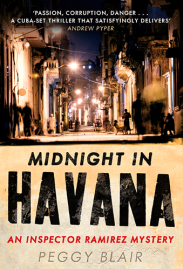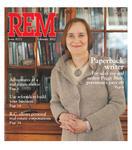The ISBN number is kind of like a Social Insurance Number for a book. It’s an identification number that, when broken down, indicates where a book was published, in what format, and by who. It also keeps track of how many editions are out there. It’s needed so royalty payments and money from sales can be directed to the proper publisher for distribution to the author. It is, if you like, a way to track inventory, like a SKU on retail items in other kinds of merchandising.
Outside of Canada, an ISBN can be purchased by an individual author for $ 125 from R.R. Bowker, which has a monopoly on this service. Publishers, however, buy them in blocks so that the cost to a traditional publisher is a fraction of that. An ISBN can be obtained in as little as 48 hours (express) or two weeks (non-priority).
ISBNs are sold in blocks of 10, 100 and 1000. It’s suggested that before you buy one, you should figure out the number of publications you will publish in the foreseeable future, and then select the block that will cover those so you can maintain one publisher prefix and minimize your unit cost per ISBN.
In Canada, however, publishers and authors can get a free ISBN, courtesy of the Canadian government through http://www.collectionscanada.gc.ca/ciss-ssci/index-e.html
Elsewhere, as of last September, a block was $250 for ten ISBNs, $575 for 100 ISBNs, and $1000 for 1000 ISBN numbers. Included with the ISBN is a SEO Title Card – a search optimized web page that features information about your book, published on sites such as BookWire.com.
Once you get your ISBN, you have to submit information about the title etc. into the Books in Print database at http://www.bowkerlink.com. (It is not done automatically. Getting an ISBN alone is not enough.)
A question was asked in the comment thread about ISBNs in e-publishing and whether they’re needed. Like most things in the new frontier, things are in a state of flux. At the moment, the answer is not always.
But if you get one, you may need more than one, for example, if you re-write the book substantially at some point after you’ve published it, or change the title. The ISBN User’s Manual explains:
• An online publication may be a bibliographic or fact database that is subject to change any second. This would be comparable to an encyclopedia or dictionary which is also constantly updated in other media, without each little amendment leading to a new edition or new ISBN. Only significant and/or structural changes (including title changes) would require new ISBNs.
• Linked material (e.g. hypertext) would only be considered covered by the same ISBN if the related material is actually part of the publication.
• If an online publication is available under different operating systems and/or command languages, each “format” would require a separate ISBN.
Note that final point because it’s contentious: that each format of an e-book requires a new ISBN.
My non-fiction book, Lament for a First Nation, has two IBSNs, one for hard cover and one for trade paperback. But in e-publishing, an e-book could be published in many different formats. Is an ISBN really required for each one?
The ISBN people say ‘yes.’ Indies say ‘not a chance.’ One opponent of this approach argues that requiring a unique ISBN for different e-formats of the same book would be like requiring a separate SKU for each colour of the same shirt sold by Sears.
On the ground, different e-publishers have taken different approaches. Some say you need an ISBN, others that you don’t.
Amazon requires an ISBN number but only one because it sells on Kindle exclusively. [NOTE: They use an identifier which is actually the ISBN number.] Any sale of an e-book by Amazon is a sale on Kindle, which makes inventory easy to track. Smashwords, on the other hand, sells to nine different e-book providers. Does that mean having nine ISBNs? What about where e-book pricing differs from country to country, for example, in Australia, where e-books are priced higher than in the U.S.?
If you’re a publisher, it’s a bit of a mess. Some do get an ISBN for every e-book format to track regional sales and sales in different formats, others don’t. Apparently, according to Brian Green, the director of the International ISBN Agency, “booksellers and wholesalers favour a different ISBN for each format, while most publishers prefer a single identifier.”
So the answer to the question about ISBNs is that if you publish through Amazon, you need an ISBN. If you self-publish through Smashwords, you will need an ISBN to sell to Apple i-Pad but other Smashwords retailers (like Kobo and Barnes and Noble) don’t require one.
Smashwords lets you choose. You can supply your own ISBN, provided it has never been used for any other print book or ebook edition.
Or, Smashwords will supply an ISBN at no cost after your book has been accepted into the Smashwords Premium Catalog. Note if you choose this second option, Smashwords will be your publisher and will list you as the author.
If you want to remain on the record as publisher, you would have to pay Smashwords for an ISBN (called the Premium ISBN) that lists you as publisher and Smashwords as distributor. The cost is $9.95. Also note that the third option is more of an internal record with R.R. Bowker that anything else: most retailers will still list Smashwords as the publisher.
I think if you’re considering e-publishing it’s best to have an ISBN for marketing reasons as well as to keep track of your sales, and best for you to get your own ISBN. You’ll be the publisher regardless of whether you go through Amazon, Smashwords or some other e-book service. Remember that if you make major changes to your e-book or change the title, you’ll need another one. And keep an eye on the ISBN debate about e-book formats and their effect on ISBNs in case you end up having to get more.

















Very interesting.
As I’m looking around to self publish one modest testimony about my diet experience (so much people have asked me so I decided to write my experience !), I’m planning to publish through the Apple iBook store.
The ISBN is required in the Apple process (a US Tax ID too…):
http://www.apple.com/itunes/content-providers/book-faq.html
One last thing: if you plan to publish your book in french, then you have to get ISBN from the Quebec Library and Archives…
http://www.banq.qc.ca/services/services_aux_editeurs/attribution_isbn/index.html?language_id=3
I’ll let you know about the rest of the process, as soon as I get my ISBN and US Tax ID (well, I’ll have to reformat my word doc to fit it in epub format also…!)
LikeLike
Very interesting, and please do keep us posted, Jerome! Thanks!!!!!
LikeLike
Amazon does NOT require an ISBN for Kindle ebooks. Check the kdp.amazon.com upload page where they make it very clear that it’s optional. They generate an ASIN number that they use for their identifier.
I spent over $500 for nothing, since I’m uploading ten different books to Amazon, none of which need the ISBN numbers I purchased. That’s like 500 more books I have to sell to just break even :o(
LikeLike
Thanks very much for that information! According to Amazon’s website, their identifier is the same as the ISBN number. http://www.amazon.com/gp/seller/asin-upc-isbn-info.html We get free ISBNs in Canada, which makes all of this much easier. And I know what you mean re book sales. I now think of all purchases in terms of how many books I need to sell!
LikeLike
It Is *not* the same as the ISBN – it is an identifier unique to Amazon that serves the same *function* as an ISBN.
LikeLike
“Each product sold on Amazon.com is given a unique ASIN. For books with 10-digit International Standard Book Number (ISBN), the ASIN and the ISBN are the same.” Maybe Wikepedia has it wrong?
LikeLike
The Wikipedia statement is poorly and misleadingly phrased.
If a book does not have an ISBN, Amazon assigns it an ASIN, which serves the same indentifying function for Amazon as an ISBN does. If a book *has* an ISBN, then that ISBN serves as the identifier and no ASIN is assigned.
Barnes & Nobel does the same thing. If no ISBN, B&N assigns the book what they call a BN ID. If an ISBN, then that serves as identifier and no BN ID is assigned.
In neither Amazon nor B&N is an ISBN required in order to self-publish an ebook. Absent one, either of these sellers will assign your book an identifying number for itself..
LikeLike
Thanks for this helpful article Peggy. Still a bit confused though. To sell both on Smashwords and Kindle, do I need two ISBNs (despite the fact that both represent a digital format)? I want be listed as publisher so I’m not taking the free ISBNs offered anywhere.
LikeLike
Hi Sally, you need one ISBN per each distinct book you write. If you’re in Canada, you can get one for free that still keeps you as the sole publisher. If you are publishing on Amazon, they do not require an ISBN but will assign their own identifier number which is actually the ISBN (I’m assuming they bought ISBNs in bulk), or you can use your own. So if you have written one book, get one ISBN; two books, get two etc. It’s based on the number of books, not the number of devices you hope to get onto. Hope this helps!
LikeLike
Thanks very much Peggy – that helps clear it up. I’m in the UK and I have to pay for a block of 10 ISBNs. So I’ll assign just the one for the digital version of my title.
I’m a bit late with this reply. I’d completely lost your url and only found it again this morning! 😀
LikeLike
Glad you found it helpful!
LikeLike
Hi Peggy, I just published my first ebook through Amazon and Smaswords. I would like to offer a printed copy of my book with Createspace and my question is I can get an isbn with createspace for free which I know I would only be able to use with them, but would getting an isbn with createspace prohibit me from using another medium to sell my print book or would I just need to get another isbn? Thank you for your time.
LikeLike
I believe you need to get another ISBN ie one for trade, one for HC, one for e-book.
LikeLike
So even in Canada, where the ISBN’s are free, if I was to publish on Amazon Kindle and createspace (or any printed version) I would require 2 ISBN’s for the same title?
LikeLike
No, one ISBN for one title if there is only one format. If you have one ebook and one printed (hard copy) book,you would need two.
LikeLike
Okay, so one ISBN is okay for the kindle version, but I will need a second if I try to self-publish a print version as well. Thank you so much for your help & congrats!
LikeLike
Peggy,
I am just in the process of getting things together to attempt self-publishing. As a Canadian resident I see we are able to get them for free, thank you for sharing that information 🙂 Bonus! Do you know how long it takes to get one? As well, do you recommend getting one before a book is completely written, to save your Title? I’ve read in some places that you can have the same title as other books without it infringing on copyright, is that true?
LikeLike
I think you can get it online right away. Titles can’t be copyrighted in Canada but other countries won’t let you use a title that’s already been used by a book, and there may be trademark protection that applies, particularly in a series. So I wouldn’t use a name that someone else has already used for an ebook in particular where the rules are different in different countries..
LikeLike
I’ve googled my title several times and can’t find anything with the same name. How would I check for sure?
LikeLike
Now that I can’t help you with. Maybe check the listings in the National Library? Any ideas, anyone?
LikeLike
Peggy,
Thanks again for your help. I will continue to review your posts on here for more insight 🙂
LikeLike
Hi Peggy: Thanks for all the great info. But do you know if short stories need ISBN’s for epublishing?
LikeLike
Hi Madeleine. Yes, they would. Any content needs an ISBN. Think of the bar codes in stores: they apply to socks just as much as suits! Cheers, Peggy
LikeLike
Hi Peggy,
Thanks for this post – I’m still trying to wrap my head around it. I’m in Canada and I just published my first e-book which is actually free with subscription to my site. I would like to be able to sell this e-book and also I am looking in to print publishing via lulu.com so that I can sell this book and future books through an online store and hopefully in brick and mortar stores (like independent bookstores). Would I be getting one (free) ISBN for the ebook and one ISBN for the print copy?
LikeLike
Yes, different formats.
LikeLike
“But do you know if short stories need ISBN’s for epublishing?”
Yes and no. You require an ISBN if you’re going to sell the story, but publications given away for free don’t need one.
LikeLike
Appreciate the article. It provides a good idea for first time writers/publishers. I manage a site called http://www.bookbyline.com and will touch base to reuse this article on the site with your permission. Regards.
LikeLike
You have my permission (with attribution, of course :-)), thanks, Omar!
LikeLike
Very useful article, and comments follow-up, Peggy. Thanks. I’ve put Beggar’s Opera on my “to read” list.
LikeLike
Thanks, Glenn, much appreciated! Hope you like it!
LikeLike
interesting information, but why is the opening statement gramatically incorrect. “The ISBN number is kind of like a Social Insurance Number for a book. It’s an identification number that, when broken down, indicates where a book was published, in what format, and by who. ” It should say, whom.
LikeLike
One can use either who or whom and be grammatically correct.
LikeLike
http://oxforddictionaries.com/words/who-or-whom
LikeLike
Peggy,
Thank you for this informative article. I’ve been looking online for other Canadian ISBN info and perhaps you know the answer. Is there a way for Canadian authors to track sales of their books using the ISBN? I have heard this is possible in the US via Bowker — if you sent your book info to them when you published it. What I’m wondering is if there is a way for me to verify the sales figures my publisher has given me.
Thanks!
Norah
LikeLike
No, unfortunately Booknet is the only source for data and you have to be an agent or publisher to have an account. (It’s not completely reliable either, as not all indies report to it.)
LikeLike
Not the best news, but thanks for your reply. It’s a bit of a wilderness for authors, isn’t it?
LikeLike
I think you can rely on your publisher to give you accurate information. You’re not making enough on sales via royalties for it to be worth their time to scam you :-).
LikeLike
For people suffering from outrageous ISBN prices, there’s a little trick you ought to know.
If you work with a Canadian service provider — such as a distributor or e-book producer — they can request an ISBN for free and assign it to your book, regardless of where you live.
Technically, this means that the service provider will be listed as your “publisher” in the Canadian ISBN database. But who cares? This has no legal meaning and no effect on your copyrights. It’s just an administrative record stating who registered the ISBN and assigned it to your book.
We do this for our clients at http://www.indiebooklauncher.com and it’s saved some of them hundreds of dollars. We include the ISBNs free with our e-book production services, or we register them “a la carte” for $20 a pop.
I’m sure there are other Canadian companies doing the same thing. I don’t know whether there are other countries with free ISBN registration, but if so, there might be companies there offering a similar service.
With Bowker gouging people at $125 per ISBN, U.S. authors in particular can save a lot of money with this trick.
We talk about a few other ISBN money-saving tips in this article on our site:
http://www.indiebooklauncher.com/resources-diy/isbns-and-epublishing.php
In a nutshell, you generally don’t need an ISBN for a free product, there’s no such thing as an “e-ISBN”, and you don’t need an ISBN for a master file (manuscript) that you send to a service provider.
Hope this helps–good luck with your self-publishing endeavours. 🙂
–Saul
LikeLike
Yes, Canada offers free ISBNs – I think I mentioned that in one of the blog posts on this issue. Thanks!
LikeLike
Thanks Peggy. Yup, you definitely mentioned it. 😉
I was intending to clarify the point that you DON’T need to be a Canadian resident to get a Canadian ISBN.
If someone were to read the Library & Archives Canada website, they would probably conclude that non-Canadians could not apply. But by using a Canadian service provider they can get around that requirement, even if the only service provided is the ISBN itself! Otherwise, the non-Canadian would be obligated to register through their own national agency, which in the U.S. and U.K. means a big price gouge.
(It blows my mind that Bowker charges $125 a shot. That’s enough to have your e-book professionally produced in a couple of formats and have the ISBN thrown in for free.)
LikeLike
I don’t believe RR Bowker has a monopoly on selling ISBNs, because I see many sellers of ISBN numbers. Do a Google search and you’ll see.
LikeLike
It’s an old post. Things may have changed. Thanks for the feedback!
LikeLike